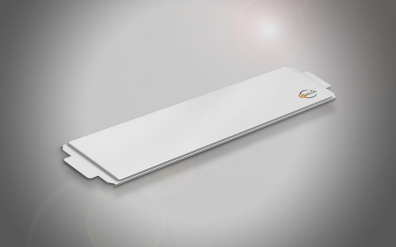
A milestone for the EV industry, signaling the dawn of the sodium battery era: With the introduction of sodium-ion batteries, China’s electric vehicle (EV) sector enters a transformative phase, marking a significant shift in battery technology.
Nuertingen, Germany, February 13th, 2024 – On December 28th, a ceremony at JMEV’s EV plant in Nanchang, Jiangxi Province, China celebrated the rollout of the world’s first electric vehicle powered by Farasis Energy’s sodium-ion batteries.
The JMEV EV3 (Youth Edition) sets a new standard as the world’s first A00-class EV equipped with new batteries. Offering a range of 251 km (156 mi), this model caters to the dynamic needs of drivers, including daily commuting and city-wide travel.
Farasis Energy’s sodium-ion battery stands out with its combination of layered oxides and hard carbon, demonstrating impressive benchmarks in the EV battery space:
- Energy density: 140 to 160 Wh/ kg.
- Safety: The battery cells have undergone extensive testing, successfully passing multiple tests including pinprick, overcharging, over-discharging, extrusion, and soaking. The battery pack complies with the no thermal runaway (NO TP) standard.
- Low-temperature performance: The battery maintains over 91 percent discharge capacity retention at -20°C (-4°F).
- Cycle life: The extended lifespan satisfies the needs of electric passenger vehicles and two-wheelers.
- Chemical materials: Beyond layered oxides, Farasis Energy is also advancing in the development of other premium materials, such as Prussian blue analogues and polyanionic compounds.
Future Plans: The Next Generation
Farasis Energy is gearing up for the next big leap in battery technology, eyeing the launch of its second-generation sodium-ion batteries in 2024. These are projected to have an energy density of 160-180 Wh/kg, with plans to ramp up to 180-200 Wh/kg in 2026, targeting a wider array of use cases.
To further expand the adoption of its sodium-ion battery products, Farasis Energy is forming partnerships across multiple segments, including A00-class micro electric vehicles, electric two-wheelers, battery-swapping services and energy storage systems (ESS). The company has garnered positive responses from clients who have received and tested their battery prototypes.
As mass production of sodium-ion batteries commences, Farasis Energy is strategically poised to diversify its product portfolio, catering better to various market needs. With excellent low-temperature performance, sodium-ion batteries effectively address the low range challenge faced by EVs in colder climates. In addition, the guaranteed safety and affordability also make the innovative battery solution an important addition to lithium battery systems, including energy storage in private households, industry and commerce.
About Farasis Energy
Farasis Energy is a leading developer and manufacturer of high-performance lithium-ion battery technology and pouch cells for electric mobility and other sustainable power storage solutions. Founded in 2002 by Dr. Keith Kepler and Dr. Yu Wang in California, the company now operates research and development centers in China, Germany, and the United States. There are currently two production facilities in Ganzhou and Zhenjiang (China), with further production facilities being built by 2025, thereby increasing total planned capacity to 145 GWh/a. A new battery plant is also being built in Gemlik (Turkey) with the establishment of the Siro joint venture between Turkish electric car manufacturer Togg and Farasis Energy, which produces modules and packs since March 2023. With more than twenty years of experience in research and development and with nearly 300 patents, Farasis Energy is shaping the future of electric mobility as a pioneer. In addition to Togg, its major strategic partners also include companies such as Mercedes-Benz and Geely.


